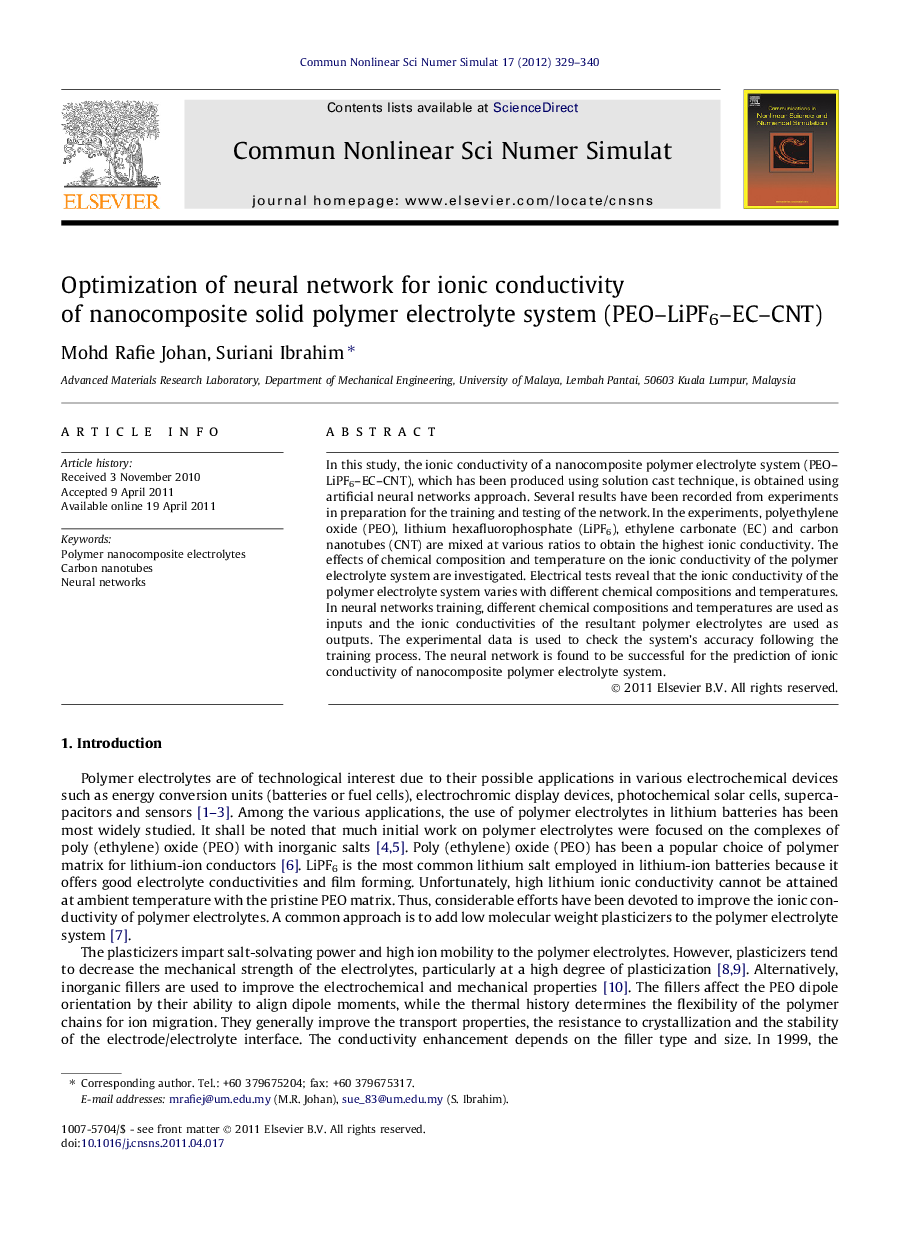| کد مقاله | کد نشریه | سال انتشار | مقاله انگلیسی | نسخه تمام متن |
|---|---|---|---|---|
| 758991 | 896458 | 2012 | 12 صفحه PDF | دانلود رایگان |

In this study, the ionic conductivity of a nanocomposite polymer electrolyte system (PEO–LiPF6–EC–CNT), which has been produced using solution cast technique, is obtained using artificial neural networks approach. Several results have been recorded from experiments in preparation for the training and testing of the network. In the experiments, polyethylene oxide (PEO), lithium hexafluorophosphate (LiPF6), ethylene carbonate (EC) and carbon nanotubes (CNT) are mixed at various ratios to obtain the highest ionic conductivity. The effects of chemical composition and temperature on the ionic conductivity of the polymer electrolyte system are investigated. Electrical tests reveal that the ionic conductivity of the polymer electrolyte system varies with different chemical compositions and temperatures. In neural networks training, different chemical compositions and temperatures are used as inputs and the ionic conductivities of the resultant polymer electrolytes are used as outputs. The experimental data is used to check the system’s accuracy following the training process. The neural network is found to be successful for the prediction of ionic conductivity of nanocomposite polymer electrolyte system.
► We model neural network which can predicted the ionic conductivity of nanocomposite polymer electrolyte systems (PEO - LiPF6 - EC - CNT).
► We examine changes in the chemical compositions and temperatures as inputs and the ionic conductivities of the resultant polymer electrolytes used as outputs.
► Changing the chemical composition and temperature will affect the ionic conductivity.
► The generalized capability of the neural network is the primary consideration of this WORK.
Journal: Communications in Nonlinear Science and Numerical Simulation - Volume 17, Issue 1, January 2012, Pages 329–340